The Well-Tempered Ear
Is the math-music link real?
4 Comments
PLEASE HELP THE EAR. IF YOU LIKE A CERTAIN BLOG POST, SPREAD THE WORD. FORWARD A LINK TO IT OR, SHARE IT or TAG IT (not just “Like” it) ON FACEBOOK. Performers can use the extra exposure to draw potential audience members to an event. And you might even attract new readers and subscribers to the blog.
By Jacob Stockinger
The blog post before the last one was about solving the “beautiful mathematics” in the music of Johann Sebastian Bach.
Here is a link: https://welltempered.wordpress.com/2024/02/18/solving-the-beautiful-math-in-bach/
But does a link between math and music really exist?
And if such a link does exist, how strong is it?
Can one discipline be used to teach the other?
Many readers have no doubt heard of how devoted Albert Einstein (below) was to his violin, even playing string quartets at the Institute for Advanced Study in Princeton, N.J. He said he thought about physics in musical terms and found his greatest joy in music. He also played duets with physicist Max Planck, who was an accomplished pianist as were Werner Heisenberg and Edward Teller.
Dr. Francis Collins, the well-known geneticist and former head of the National Institutes for Health, is known for playing the guitar. As the 2020 winner of the Templeton Prize for scientific and spiritual curiosity, Collins accompanies superstar soprano Renée Fleming in the Stephen Foster song “Hard Times, Come Again No More” in the YouTube video at the button.)
Locally, the late pioneering University of Wisconsin-Madison geneticist Jim Crow (below) played the viola, even sitting in with the Pro Arte Quartet.
The Ear also knows of many middle schoolers, high schoolers and UW students, especially undergraduates, who pursue dual majors in music and math, science or medicine — often to pursue a more practical and better paying career than being a professional musician.
Personal anecdotes can be dramatic and convincing.
But anecdotes and evidence are not the same thing.
Here is a more formal study:
https://www.iflscience.com/is-there-really-a-link-between-math-skills-and-musical-skills-73069
What do you think?
Are math and music linked?
Do you know of other famous examples?
What has been your own experience with math and music?
If you are a music, math or science teacher, have you noticed such a link among your students?
What do students themselves — for example, those in the Wisconsin Youth Symphony Orchestras (WYSO) — say about such a math-music link?
The Ear wants to hear.
Tags: #BlogPost, #BlogPosting, #FacebookPost, #FacebookPosting, #YouTubevideo, accompany, Albert Einstein, anecdoite, Arts, audience, Bach, Baroque, beautiful, blog, career, Cello, Chamber music, choral music, Classical music, composer, Concert, concerto, convincing, curiosity, discipline, doctor, Dr., dramatic, duet, Early music, Edward Teller, Einstein, equation, evidence, exist, experience, Facebook, faculty, Francis Collins, genetics, guitar, hard times, high school, Institute for Advanced Study, Jacob Stockinger, James Crow, job, Johann Sebastian Bach, link, Ludwig van Beethoven, Madison, Madison Symphony Orchestra, manuscript, math, mathematics, Max Planck, medicine, Middle school, Mozart, Music, music students, musical score, Musician, National Institutes of Health, New Jersey, NIH, ohysicist, opera, Orchestra, Overture Center, pay, physics, Pianist, Piano, pioneer, practical, Princeton, Pro Arte Quartet, professional, Renée Fleming, science, scientific, score, singer, Sonata, soprano, spiritual, spirituality, Stephen Foster, string, String quartet, strings, strong, students, superstar, symphony, tag, Teacher, Templeton Prize, The Ear, truth, undergraduates, United States, University of Wisconsin-Madison School of Music, University of Wisconsin–Madison, UW, UW-Madison, Verdi, vioa, Viola, Violin, vocal music, Werner Heisenberg, Wisconsin, Wisconsin Youth Symphony Orchestras, Wolfgang Amadeus Mozart, WYSO, YouTube
Why are Asians dominating Western classical music?
Leave a Comment
PLEASE HELP THE EAR. IF YOU LIKE A CERTAIN BLOG POST, SPREAD THE WORD. FORWARD A LINK TO IT OR, SHARE IT or TAG IT (not just “Like” it) ON FACEBOOK. Performers can use the extra exposure to draw potential audience members to an event. And you might even attract new readers and subscribers to the blog.
By Jacob Stockinger
The month of May is Asian-American and Pacific Islander Heritage month in the U.S.
And here is a perfect story to provide questions and raise issues that pertain to that theme as it figures in classical music.
We have not seen many of them booked for concerts locally, but perhaps you have noticed how so many Asian musicians, particularly pianists, have been winning major competitions.
Those competitions include the Van Cliburn (Korean Yunchan Lim, below top), the Chopin (Chinese-Canadian Bruce Liu, below bottom), the Tchaikovsky, the Arthur Rubinstein, the Queen Elizabeth of Belgium, the Leeds Competition, the Geneva Competition and many others that are less famous.
Perhaps you have also noticed how we hear more Asian opera singers at the Met and more Asian string players in orchestras around the world.
More Asians also seem to be studying and performing in lower and higher educational institutions and organizations.
And perhaps you, like The Ear, have wondered what is behind that trend?
Here is a terrific first-person story — with research, details, photos and performance videos – written by a Canadian musician of Japanese descent that appeared on the Canadian Broadcasting Corporation (CBC).
But The Ear thinks it could easily apply to the United States, Australia and other non-Asian places and cultures.
Here is a link:
Do you think this story applies to Asians and Asian-Americans in the U.S.?
If you yourself are an Asian or Asian-American musician or music student, do the observations and analysis in the story ring true to you own experience?
Do you have other thoughts to add about the cultural reasons for the surge of Western classical music in Asia and among Asians elsewhere?
Are there important lessons here for non-Asian people and places?
The Ear wants to hear.
Tags: #BlogPost, #BlogPosting, #FacebookPost, #FacebookPosting, #World-famous, #YouTubevideo, analysis, apply, approval, Arthur Rubinstein, Arts, Artur Rubinstein, Asia, Asian American, Asians, audience, Bach, Baroque, Beethoven, Belgium, blog, Book, Bruce Liu, Canada, Canadian, cellist, Cello, Chamber music, Chen, Child, China, Chinese, Chopin, Chopin International Piano Competition, choral music, Classical music, Competition, composer, Concert, concerto, conductor, culture, descent, details, discipline, dominate, domination, Early music, Education, experience, Facebook, famous, Focus, Geneva, heritage, institution, Israel, Japan, Japanese, Kevin Chen, Korea, Korean, Lang Lang, Leeds, Leeds Competition, lessons, Lim, Liu, Madison Symphony Orchestra, Margaret Cho, May, Metropolitan Opera, model minority, month, Montreal, Mozart, Music, music student, observation, opera, Orchestra, organization, Ottawa, Overture Center, Pacific Islander, Parent, photo, Pianist, Piano, population, Queen Elizabeth, Queen Elizabeth of Belgium, reason, research, respect, Rubinstein, Seong-Jin Cho, share, singer, Sonata, South Korea, South Korean, stereotype, string player, Student, success, surge, Switzerland, symphony, tag, Tchaikovsky, Tel Aviv, The Ear, the Met, think, thought, Timothy Chooi, Toronto, true, U.S., University of Wisconsin-Madison School of Music, University of Wisconsin–Madison, Van Cliburn, Van Cliburn International Piano Competition, video, Viola, Violin, violinist, vocal music, Western, win, Wolfgang Amadeus Mozart, yourself, YouTube, Yuja Wang, Yunchan Lim
Beethoven helps LeBron James break a big basketball scoring record
7 Comments
PLEASE HELP THE EAR. IF YOU LIKE A CERTAIN BLOG POST, SPREAD THE WORD. FORWARD A LINK TO IT OR, SHARE IT or TAG IT (not just “Like” it) ON FACEBOOK. Performers can use the extra exposure to draw potential audience members to an event. And you might even attract new readers and subscribers to the blog.
By Jacob Stockinger
Sometime this coming week — maybe even by the time you read this — basketball superstar LeBron James (below) will break the all-time scoring record for the NBA.
The current record of 38,387 points is held by Kareem Abdul-Jabbar (known earlier in his career as Lew Alcindor) who he broke the previous record held by Wilt Chamberlain on April 5, 1984. Abdul-Jabbar, who is famous for his “skyhook,” retired at 42 in 1989 and is now 75.
At 38, James — who is just 63 points away from the record as of this writing — still has many years to play and score.
Based on what the James (below, in action) — who is also the first player to become a billionaire while playing in the NBA — usually scores each game, professional sports watchers expect he will surpass Abdul-Jabbar at a game against the Milwaukee Bucks this coming Thursday night, Feb. 9, in Milwaukee.
When he does, you will no doubt hear about it. It will be big news since the previous NBA scoring record has lasted for almost 34 years.
James, who plays for the Los Angeles Lakers, is known as a very disciplined, even obsessive, player who even follows a special diet to stay in shape.
What’s more, according to reports, James — who took his first piano lesson from the famous Chinese pianist Lang Lang — also listens to classical music. He especially likes to listen to Beethoven (below) after he listens to hip-hop while in the weight room, and then leaves to get ready and “calm down” before a game and heading out to the court.
Here is a link to that story on ClassicFM:
What Beethoven pieces do you think LeBron James listens to in order to calm down before a game? Symphonies? Concertos? Chamber music? A lot of Beethoven seems more aggressive than relaxing to The Ear. But the slow middle movement of the Piano Concerto No. 5 “Emperor” (played by Lang Lang in the YouTube video at the bottom) seems like a good choice.
Maybe James will even somehow read this and let us know his favorite works by Beethoven and other classical composers.
Do any other readers or athletes listen to classical music as part of their athletic training, preparation and activity? Do a lot of the runners who are listening to something through ear buds listen too classical music?
The Ear wants to hear.
Tags: #BlogPost, #BlogPosting, #ClassicFM, #EmperorConcerto, #FacebookPost, #FacebookPosting, #LangLang, #People'sRepublicofChina, #TheEar, Abdul Kareem-Jabbar, article, Arts, Asia, athlete, athletic, basketball, Beethoven, billionaire, blog, California, career, Chamber music, China, Classical music, composer, concerto, court, diet, discipline, Emperor Concerto, Facebook, famous, first, game, hip-hop, Jacob Stockinger, LA, Lang Lang, LeBron James, lesson, Lew Alcindor, link, Los Angeles, Los Angeles Lakers, Ludwig van Beethoven, Milwaukee, Milwaukee Bucks, Music, National Basketball Association, NBA, news, obsessive, Obsessive–compulsive disorder, Orchestra, Pianist, Piano, piano lesson, pieces, practice, PRC, preparation, professional sports, rap, reader, record, score, share, Sonata, Sports, story, superstar, symphony, tag, The Ear, training, United States, video, weight, weights, Wilt Chamberlain, Wisconsin, working out, works, YouTube
Classical music: Prize-winning UW-Madison conductor Chad Hutchinson talks about the FREE and unusual all-American, all-20th century concert he will perform with the UW Symphony Orchestra this Friday night
1 Comment
IF YOU LIKE A CERTAIN BLOG POST, PLEASE FORWARD A LINK TO IT OR SHARE IT (not just “Like” it) ON FACEBOOK. Performers can use the extra exposure to draw potential audience members to an event.
By Jacob Stockinger
Chad Hutchinson (below) is starting his second season at the University of Wisconsin-Madison’s Mead Witter School of Music by putting his own stamp on programming with an intriguing, all-American and all-20th-century concert that combines music for the concert hall with music for plays and films.
The FREE concert by the UW Symphony Orchestra is in Mills Hall this Friday night, Oct. 12, and starts at 8 p.m. with an informal pre-concert talk by Hutchinson (below) at 7:30 p.m.
Hutchison recently won one first prize and two second prizes from The American Prize for work he did – in opera conducting, orchestral conducting and orchestral programming — at the University of Minnesota and the University of South Dakota.
For more details, go to: https://www.music.wisc.edu/event/uw-madison-symphony-orchestra-3/
The Ear asked Hutchinson how, after his first year, he feels about the UW-Madison.
He answered: “What makes the UW-Madison special is the camaraderie and support of the students, faculty and staff across the numerous disciplines within the Mead Witter School of Music.
“I’m thrilled to be back working with the orchestra (below), opera and conducting students and collaborating with the amazing faculty here. Seeing the “light bulb” moments when students realize and achieve a new level of competency for themselves and the ensemble is the best part of the profession.”
Here are his thoughts about the program:
“The UW-Madison Symphony Orchestra opens the 2018-2019 season with a program of three influential American composers. This concert will highlight the juxtaposition of traditional classical music and compositions heavily influenced by folk, jazz and the blues.
“A common thread throughout the concert is the idea of firsts and exploring new ideas as a composer.
“The Overture to “The School for Scandal” (1931) of Samuel Barber (below) was the first piece that he composed for full orchestra and is based on the Restoration comedy by Richard Sheridan.
“This performance will be the debut of one of the Symphony Orchestra’s new doctoral conducting students Ji-Hyun Yim (below). Ji-Hyun (Jenny) comes to Madison after completing a Master’s Degree in Orchestral Conducting from the University of North Texas.
“The second piece on the program is one that I have wanted to program for quite some time. The “Afro-American” Symphony (1930) of William Grant Still (below, in a photo by Carl Van Vechten), his first symphony, is widely regarded as the first large-scale piece of symphonic repertoire composed by an African-American and performed by a major symphony orchestra.
Each movement’s title is influenced by short poems by the 20th-century African-American poet Paul Laurence Dunbar (below, in 1890).
“Since the Barber and Still were composed within one year of each other in 1930-1931, I wanted to show the dichotomy of the straight-ahead classical world and the other side of classical music in the late 1920s and 1930s that was being heavily influenced by the more popular music of the time.
“Lastly, we feature the first and only film music that Bernstein composed. “On the Waterfront” (1954), an Oscar-winning film directed by Elia Kazan that starred Marlon Brando (below) and Eva Marie Saint, shows Bernstein writing simultaneously for the symphonic hall and the big screen.
“This work will feature UW-Madison professor of saxophone and composition Les Thimmig (below) and will showcase many soloists within the orchestra. While not programmed as often as his music from West Side Story or On the Town, I believe that Bernstein’s unique use of color, rhythm and melody in this work – heard in the YouTube video at the bottom — speak for themselves.”
Tags: #20thCentury, #African-AmericanMusic, #Afro-AmericanSymphony, #All-American, #AmericanComposer, #AudienceMembers, #BigScreen, #BlogPost, #BlogPosting, #BrassMusic, #CarlVanVechten, #ChadHutchinson, #ConcertHall, #CrossoverMusic, #DoctoralDegree, #EliaKazan, #EvaMarieSaint, #FacebookPost, #FilmComposer, #FilmMusic, #FilmScore, #FilmSoundtrack, #FirstPrize, #FolkMusic, #Fridaynight, #JazzMusic, #JennyYim, #Ji-HyunYim, #LeonardBernstein, #LesThimmig, #MarlonBrando, #Master'sDegree, #MeadWitterSchoolofMusic, #OntheTown, #OntheWaterfront, #OperaConductor, #OperaMusic, #OrchestralMusic, #OscarAward, #PaulDunbar, #PercussionSection, #RestorationComedy, #RichardSheridan, #SamuelBarber, #SecondPrize, #SymphonicRepertoire, #TheAmericanPrize, #TheBlues, #TheSchoolforScandal, #UniversityofMInnesota, #UniversityofNorthTexas, #UniversityofSouthDakota, #UniversityofWisconsin, #UniversityofWisconsin-Madison, #UniversityOpera, #UWOpera, #UWSymphonyOrchestra, #WestSideStory, #WilliamGrantStill, #WindSection, #WomanConductor, #YouTubevideo, 20th-century, 20th-century music, African American, African-American music, Afro-American Symphony, American Prize, Arts, audience, blog, Blog post, blog posting, blues, camaraderie, Carl Van Vechten, Cello, Chad Hutchinson, Classical music, classicalmusic, collaborating, collaboration, color, comedy, competency, composer, Composition, concert hall, Conducting, conductor, crossover music, discipline, drama, Elia Kazan, Eva Marie Saint, Facebook, faculty, film, first prize, Folk music, free, Friday night, influence, informal, Jacob Stockinger, Jazz, Jenny YIm, Ji-Hyun Yim, Leonard Bernstein, Les Thimmig, like, Madison, Marlon Brando, master's, Mead Witter School of Music, melody, movement, movie, On the Town, On the Waterfront, opera, Orchestra, Oscar, Overture, Paul Dunbar, performer, play, poet, Poetry, profession, professor, programming, repertoire, repertory, Restoration Comedy, rhythm, Richard Sheridan, Samuel Barber, Saxophone, School for Scandal, Season, second prize, share, soloist, staff\, Student, Suite, support, symphony, talk, thought, title, traditional, unique, United States, University of Minnesota, University of South Dakota, University of Wisconsin-Madison School of Music, University of Wisconsin–Madison, University of Wisocnsin, University Opera, use, UW Opdra, UW Symphony Orchestra, Viola, Violin, West Side Story, William Grant Still, work, YouTube
Classical music: The UW Choral Union and UW Symphony Orchestra deliver outstanding performances of great music by Mozart and Brahms
2 Comments
By Jacob Stockinger
Here is a special posting, a review written by frequent guest critic and writer for this blog, John W. Barker. Barker (below) is an emeritus professor of Medieval history at the University of Wisconsin-Madison. He also is a well-known classical music critic who writes for Isthmus and the American Record Guide, and who hosts an early music show once a month on Sunday morning on WORT-FM 89.9. For years, he served on the Board of Advisors for the Madison Early Music Festival and frequently gives pre-concert lectures in Madison. Barker also took the performance photos.
By John W. Barker
The program for the first concert this season by the UW Choral Union (below), mercifully, had nothing whatsoever to do with Christmas, and just offered great music.
There were only two works, one by Brahms and the other by Mozart. Surefire!
Johannes Brahms composed three relatively short works for chorus, without soloists, and orchestra. Of these, I wish conductors would get busy with two of them in particular. The Gesang der Parzen (Song of the Fates) and Nänie are simply superb works by one of the greatest of all choral composers.
The third, the Schicksalslied (Song of Destiny), Op. 54, I would rate just a bit lower for musical content, but that is the one of the three that is more frequently performed, and that was the one we heard.
That said, there is much quite beautiful music in the piece, which sets a poem of Friedrich Hölderlin that moves from anxiety to desperation. Brahms (below) preceded the choral setting with a serene introduction that—to satisfy his aesthetics if not the poet’s—he repeats at the end to restore order.
Conductor Beverley Taylor (below) employed rather broad tempos, but this enabled her to bring out some of the melodic material with great beauty.
And, with a chorus of some 124 singers, she was able to give the music tremendous sonority, if a bit at the price of German diction. With the very good UW Symphony Orchestra in fine fettle, too, this was an excellent performance that should alert listeners to neglected treasures.
The main work was the unfinished “Great” Mass in C minor, K. 427, by Mozart (below). This is music inspired by the composer’s marriage and by the new (for him) artistic climate of Vienna. Even incomplete – it has a fragmentary “Credo” and is missing an “Agnus Dei”) — it still stands, with his also uncompleted Requiem, as a towering masterpiece of his sacred choral output.
Taylor displayed a fine feeling for both the overall and individual qualities of the work, projecting them with vigor and discipline.
There were four student soloists (below), with promising young voices.
But eventually the standout proved to be soprano Sarah Richardson (below). The operatic-style aria, “Et incarnatus est” from the “Credo” was apparently sung by Mozart’s wife in its preliminary performance, and is often heard as a separate solo number today. This was sung by Richardson (below) with skill and eloquence. (You can hear the aria in the YouTube video at the bottom.)
This chorus was really a bit oversized for a work like this, but Taylor made it the real star of the performance, in singing with both power and precision.
A truly rewarding concert!
Tags: aesthetic, Agnus Dei, American Record Guide, anxiety, aria, artistic, Arts, beautiful, Beverly Taylor, Cello, choral music, Christmas, Classical music, climate, composer, content, Credo, critic, desperation, diction, discipline, Early music, eloquence, emeritus, esthetic, feeling, fettle, fine, fragment, German, great, History, Holiday, incomplete, individual, introduction, Isthmus, Jacob Stockinger, Johannes Brahms, John W. Barker, lecture, Madison, Madison Early Music Festival, Marriage, mass, masterpiece, material, Medieval, melodic, melody, Mozart, Music, musical, Nanie, opera, operatic, Orchestra, order, output, photo, photograph, piece, poem, poet, power, precision, preformance, professor, quality, Requiem, restore, review, rewarding, sacred, Season, serene, setting, short, singer, skill, soloists, Song of Destiny, Song of the Fates, star, Student, superb, Tempo, towering, unfinished, United States, University of Wisconsin-Madison School of Music, University of Wisconsin–Madison, UW Choral Union, UW Symphony Orchestra, Vienna, vigor, Viola, Violin, vocal music, voice, wife, Wisconsin, Wolfgang Amadeus Mozart, work, WORT-FM 89.9, YouTube
Classical music: Want to hear the highest note ever sung at the Metropolitan Opera?
4 Comments
By Jacob Stockinger
It is called the note that has never been sung before.
Not even at the famed Metropolitan Opera (below, first from outside and then from the stage over the orchestra pit) in New York City.
It is that high.
An A.
Waaaay up there.
And with no preparation, no working up to it, in the score.
Just BAM!! There it is.
You can hear more about it, and the discipline and preparation it takes to sing it, in the YouTube video at the bottom.
But it gets sung in the new opera by Thomas Adès, “The Exterminating Angel,” which will be broadcast in area cinemas this Saturday afternoon and a week from next Wednesday in “Live from the Met in HD.”
Here is a story in The New York Times that has an audio sample:
https://www.nytimes.com/2017/11/07/arts/music/metropolitan-opera-high-note-exterminating-angel.html
And here is a link to a story on NPR that also allows you to hear the note sung by coloratura soprano Audrey Luna (below, in a photo by Greg James), who has a special talent, a gift, for singing high notes and specializes in them:
And here is a link to Audrey Luna’s website:
Finally, here is a link to a previous post this week with background and details about the Adès opera and its broadcast times and date. The New York Times’ senior critic Anthony Tommasini says “”The Exterminating Angel” should be the one opera you see this year if you only see one.”
Tags: afternoon, Anthony Tommasini, Arts, Audrey Luna, Broadcast, choral music, cinema, Classical music, coloratura, composer, critic, discipline, film, gift, hear, high, Jacob Stockinger, Live From The Met in HD, Madison, MANHATTAN, New York City, New York Times, note, NPR, opera, Orchestra, outside, pit, preparation, Saturday, score, senior, soprano, specialize, stage, talent, The Exterminating Angel, The New York Times, Thomas Ades, United States, University of Wisconsin-Madison School of Music, University of Wisconsin–Madison, vocal music, Wednesday, week, work, YouTube
- June 2024
- May 2024
- April 2024
- March 2024
- February 2024
- January 2024
- December 2023
- November 2023
- October 2023
- September 2023
- August 2023
- July 2023
- June 2023
- May 2023
- April 2023
- March 2023
- February 2023
- January 2023
- December 2022
- October 2022
- September 2022
- June 2022
- May 2022
- April 2022
- March 2022
- July 2021
- June 2021
- May 2021
- April 2021
- March 2021
- February 2021
- January 2021
- December 2020
- November 2020
- October 2020
- September 2020
- August 2020
- July 2020
- June 2020
- May 2020
- April 2020
- March 2020
- February 2020
- January 2020
- December 2019
- November 2019
- October 2019
- September 2019
- August 2019
- July 2019
- June 2019
- May 2019
- April 2019
- March 2019
- February 2019
- January 2019
- December 2018
- November 2018
- October 2018
- September 2018
- August 2018
- July 2018
- June 2018
- May 2018
- April 2018
- March 2018
- February 2018
- January 2018
- December 2017
- November 2017
- October 2017
- September 2017
- August 2017
- July 2017
- June 2017
- May 2017
- April 2017
- March 2017
- February 2017
- January 2017
- December 2016
- November 2016
- October 2016
- September 2016
- August 2016
- July 2016
- June 2016
- May 2016
- April 2016
- March 2016
- February 2016
- January 2016
- December 2015
- November 2015
- October 2015
- September 2015
- August 2015
- July 2015
- June 2015
- May 2015
- April 2015
- March 2015
- February 2015
- January 2015
- December 2014
- November 2014
- October 2014
- September 2014
- August 2014
- July 2014
- June 2014
- May 2014
- April 2014
- March 2014
- February 2014
- January 2014
- December 2013
- November 2013
- October 2013
- September 2013
- August 2013
- July 2013
- June 2013
- May 2013
- April 2013
- March 2013
- February 2013
- January 2013
- December 2012
- November 2012
- October 2012
- September 2012
- August 2012
- July 2012
- June 2012
- May 2012
- April 2012
- March 2012
- February 2012
- January 2012
- December 2011
- November 2011
- October 2011
- September 2011
- August 2011
- July 2011
- June 2011
- May 2011
- April 2011
- March 2011
- February 2011
- January 2011
- December 2010
- November 2010
- October 2010
- September 2010
- August 2010
- July 2010
- June 2010
- May 2010
- April 2010
- March 2010
- February 2010
- January 2010
- December 2009
- November 2009
- October 2009
- September 2009
- August 2009
Archives
- 2,495,376 hits
Blog Stats
Recent Comments
Tags
#BlogPost #BlogPosting #ChamberMusic #FacebookPost #FacebookPosting #MeadWitterSchoolofMusic #TheEar #UniversityofWisconsin-Madison #YouTubevideo Arts audience Bach Baroque Beethoven blog Cello Chamber music choral music Classical music Compact Disc composer Concert concerto conductor Early music Facebook forward Franz Schubert George Frideric Handel Jacob Stockinger Johannes Brahms Johann Sebastian Bach John DeMain like link Ludwig van Beethoven Madison Madison Opera Madison Symphony Orchestra Mead Witter School of Music Mozart Music New Music New York City NPR opera Orchestra Overture Center performer Pianist Piano post posting program share singer Sonata song soprano String quartet Student symphony tag The Ear United States University of Wisconsin-Madison School of Music University of Wisconsin–Madison Viola Violin vocal music Wisconsin Wisconsin Chamber Orchestra wisconsin public radio Wolfgang Amadeus Mozart YouTube






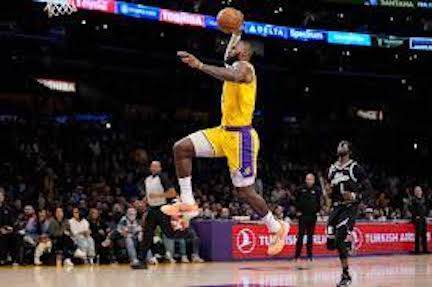


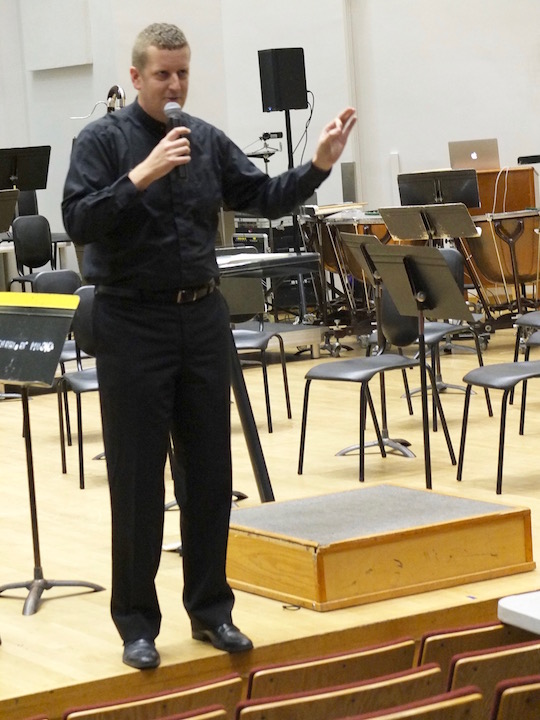

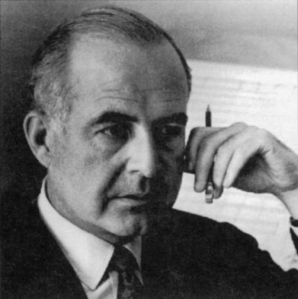

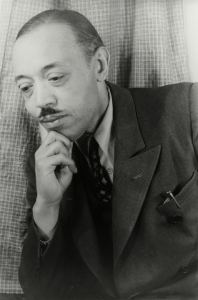
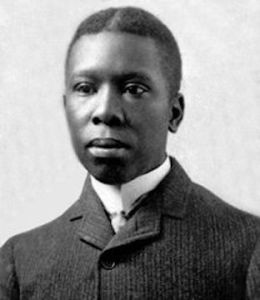



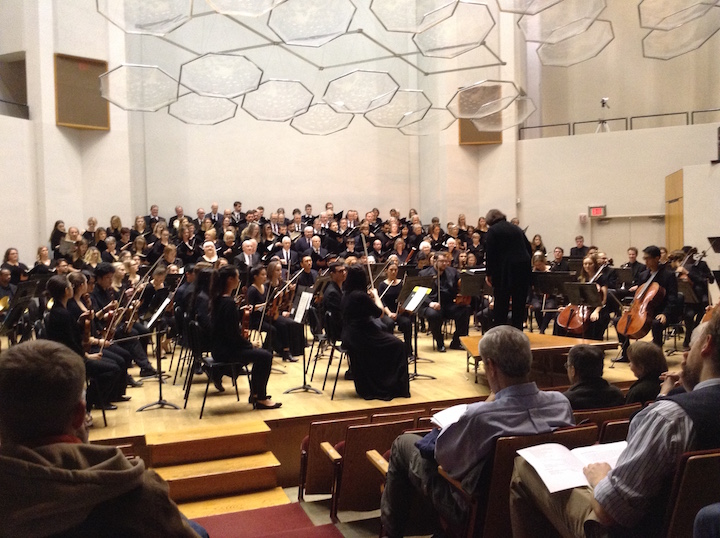



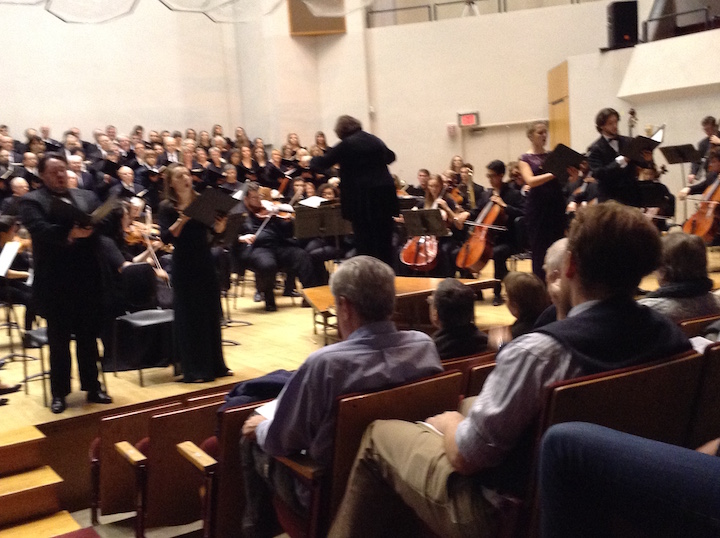
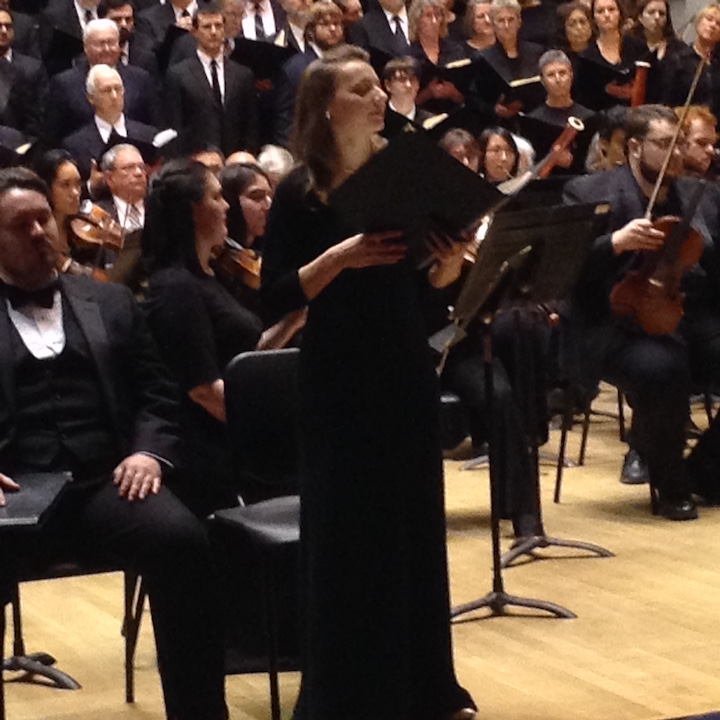

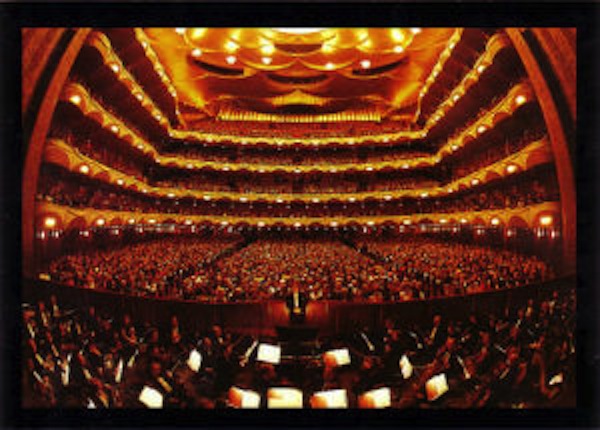
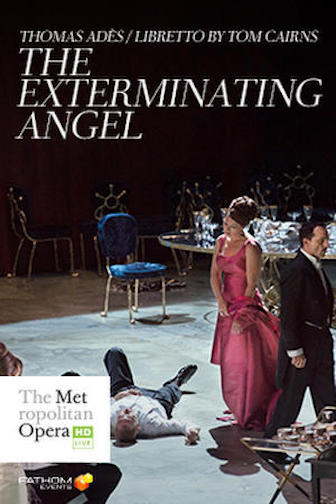
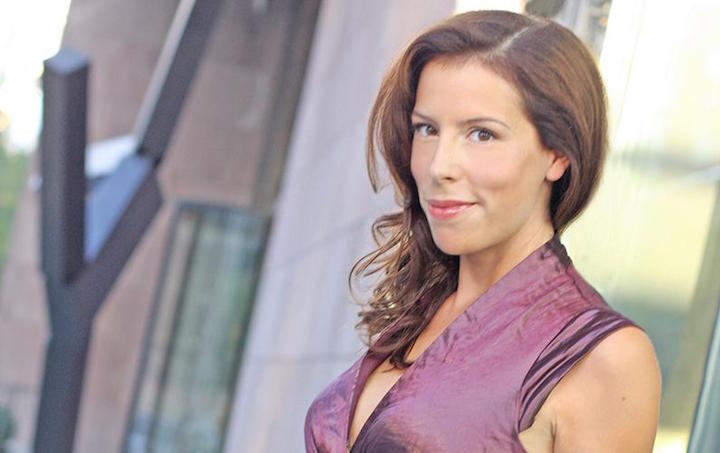
Classical music: The future of Western classical music is in Asia – specifically China, South Korea, Japan and Taiwan. Why is that?
8 Comments
IF YOU LIKE A CERTAIN BLOG POST, PLEASE SPREAD THE WORD. FORWARD A LINK TO IT OR, SHARE or TAG IT (not just “Like” it) ON FACEBOOK. Performers can use the extra exposure to draw potential audience members to an event.
By Jacob Stockinger
It’s not just about Lang Lang.
The signs are everywhere.
They were present at a recent piano recital by elementary school, middle school and high school students that The Ear attended.
You see it at the University of Wisconsin-Madison’s Mead Witter School of Music and at top music schools, including the Curtis Institute of Music, across the U.S. and Western Europe. And you see it in youth groups such as the Wisconsin Youth Symphony Orchestras (below).
Western classical music recording labels, such as Deutsche Grammophon and Sony Classical, are looking to develop new markets and so are signing more Asian musicians, such as the Shanghai Symphony Orchestra and Shanghai String Quartet, and releasing more Asian performances. (Below is the Taiwanese-Australian, prize-winning violinist Ray Chen, who is also a master at using social media to build his meteoric career.)
All these items point to the same conclusion: The future of Western classical music looks more and more likely to be found in Asian culture and in Asia – specifically in China, South Korea, Japan and Taiwan. (Next season, prize-winning South Korean pianist Joyce Yang (below) returns to Madison, where she first gave a recital at the Wisconsin Union Theater, to solo with the Madison Symphony Orchestra.)
Consider some of the following:
There are, The Ear read somewhere, now more piano students in China than in all of Europe, North America and South America combined. And he is reading about more and more concert tours of China and other Asian countries by Western performers — even while in the U.S. the number of pianos in homes are on the decline.
Increasingly the winners of major international competitions — such as the Chopin competition, the Van Cliburn competition, the Tchaikovsky competition, the Queen Elizabeth of Belgium competition and the Leeds competition – come from Asia or are Asian. (Below, in a photo by Simon Fowler, is American pianist George Li, who immigrated from China as a child and attended Harvard and the New England Conservatory before winning a silver medal at the Tchaikovsky Competition. His concert career is now blossoming fast.)
In recent years, China has been building a lot of first-rate concert halls, opera houses and music schools. And the famed Juilliard School in New York City will open its second campus this fall in Tianjin, near Beijing.
China has certainly come a long way from the days of the Cultural Revolution when people could be imprisoned for listening to Beethoven, who is now a cultural icon in China — as you can hear at the bottom in the YouTube video of Li Jing Zhan conducting the orchestra at the Chinese National Opera in Beethoven’s No. 7. (Below is the striking new National Center for the Performing Arts in China.)
https://www.interlude.hk/front/culture-construction-chinas-new-concert-halls/
Nineteen of the 24 final competitors, ages 13-17, in the second Van Cliburn Junior Competition – which starts in Dallas, Texas, on May 31 and ends on June 8 – are Asian, Asian-American and Asian-Canadian, all with astonishingly impressive credentials and experience. It will be streamed live and free. Take a look and listen:
https://www.cliburn.org/2019-cliburn-junior-competitors/
Why this Asian shift is happening remains somewhat of a mystery to The Ear, although he had been thinking about for a long time.
Then he came across a op-ed column confirming the prevalence of Asian classical musicians. It was written by the American concert pianist and teacher Inna Faliks (below), who teaches at UCLA and who wrote convincingly about her recent concert experiences in China in The Washington Post.
Read it and see what you think, and tell us whether you agree:
https://www.washingtonpost.com/opinions/the-future-of-classical-music-is-chinese/2019/03/22/2649e9dc-4cb5-11e9-93d0-64dbcf38ba41_story.html?utm_term=.7f149e0f8eb9
Why are Asians so interested in Western classical music and music education? And why do they respect it or even revere it so much?
Does it have to do with the “tiger mom” phenomenon of strong parental pressure to succeed and achieve?
Is it largely a function of population?
Is it because of the collective teamwork required to make a lot of chamber music and orchestral music, or with the intense and instructive teacher-student relationship?
Is it because the cultural depth and seriousness in Western music education – ing contrast to the increasingly pop culture of the West – that prepares students well for the training and intellectual discipline required in other educational fields and careers, including the STEM areas (science, technology, engineering and mathematics)?
Is Asia simply fascinated by Western culture the same way that Western culture was fascinated by the exotic Asian cultures – especially in China and Japan — during the 19th century and earlier? Or is the West increasingly ignoring its own culture. (The Ear can’t recall any classical musicians performing at President Donald Trump’s White House. Can you?)
How do you see the situation and react to it? And what do you think about the causes and effects?
Please leave your reactions and thoughts in the COMMENT section.
The Ear wants to hear.
Share this:
Tags: #BeijingChina, #BlogPost, #BlogPosting, #ChamberMusic, #ChineseNationalOpera, #ChopinInternationalPianoCompetition, #ClassicalMusician, #ClassicalRecording, #ConcertHall, #ConcertTour, #CulturalRevolution, #CurtisInstitute, #DallasTexas, #DeutscheGrammphon, #ElementarySchool, #FacebookPost, #FacebookPosting, #GeorgeLi, #HarvardUniversity, #HighSchool, #HongKong, #HongKongChina, #InnaFaliks, #JoyceYang, #JuilliardSchool, #LangLang, #LeedsCompetition, #LiJingZhan, #LiveStreaming, #LudwigVanBeethoven, #MadisonSymphonyOrchestra, #MeadWitterSchoolofMusic, #MiddleSchool, #MusicEducation, #MusicSchool, #NationalCenterforthePerformingArts, #NewEnglandConservatoryofMusic, #NewYorkCity, #NorthAmerica, #OperaHouse, #OperaMusic, #OrchestralMusic, #ParentalPressure, #People'sRepublicofChina, #PerformingArts, #PersonalRelationship, #PopCulture, #PresidentDonaldTrump, #Prize-Winning, #PrizeWinner, #QueenElizabeth, #QueenElizabethCompetition, #RayChen, #RecordingLabels, #RecordLabels, #ShangaiQuartet, #ShanghaiChina, #ShanghaiSymphonyOrchestra, #SilverMedal, #SocialMedia, #SonyClassical, #SouthAmerica, #SouthKorea, #SouthKorean, #StreamedLive, #StringQuartet, #TchaikovskyCompetition, #TheEar, #TheWashingtonPost, #TheWest, #TianjinChina, #TigerMom, #UnitedStates, #UniversityofWisconsin-Madison, #VanCliburn, #VanCliburnInternationalPianoCompetition, #WesternCulture, #WesternEurope, #WhiteHouse, #WisconsinUnionTheater, #WisconsinYouthSymphonyOrchestras, #YouTubevideo, American, Arts, Asia, asian, attend, audience, Australia, Australian, Beethoven, Beijing, Belgium, blog, building, Canadian, career, cause, Cello, Chamber music, Child, children, China, Chinese, Chinese National Opera, Chopin International Piano Competition, Classical music, classical musician, classicalmusic, collective, comment, Compact Disc, Competition, composer, Concert, concert hall, concert tour, conclusion, conduct, conductor, construction, credential, Cultural Revolution, culture, Curtis Institute of Music, Dallas, decline, depth, Deutsche Grammophon, discipline, Donald Trump, Education, effect, elementary school, engineering, Europe, exotic, experience, Facebook, first-rate, forward, free, function, future, George Li, group, Harvard, high school, Home, Hong Kong, icon, immigrant, immigrated, immigration, imprison, Inna Faliks, instruct, instructive, intense, International Tchaikovsky Competition, item, Jacob Stockinger, Japan, Japanese, Joyce Yang, Juilliard School, Juilliard School of Music, Korean, Lang Lang, Leeds Competition, Li Jing Zhan, like, link, listen, live, look, Ludwig van Beethoven, Madison, Madison Symphony Orchestra, market, Master, mathematics, Mead Witter School of Music, medal, media, member, meteoric, Middle school, Music, Music education, music school, music schools, Musician, mystery, National Center for the Performing Arts, New England, New England Conservatory, New York City, North America, number, opera, Opera house, Orchestra, orchestral music, parental pressure, parents, People, People's Republic of China, performer, Performing arts, personal relationship, Pianist, Piano, pop, pop culture, population, President, President Donald Trump, pressure, prison, prize, public, Queen Elizabeth, Queen Elizabeth Competition, Ray Chen, reaction, recital, Record label, recording, relationship, respect, revere, rite, science, section, seriousness, Shanghai, share, silver, sing, social media, solo, Sony Classical, South America, South Korea, STEM, streamed, String quartet, Student, symphony, tag, Taiwan, Taiwanese, Teacher, teamwork, technology, Texas, The Ear, The Washington Post, The West, The White House, thought, Tianjin, tiger mom, tour, training, U.S., UCLA, United States, University of Wisconsin-Madison School of Music, University of Wisconsin–Madison, UW-Madison, Van Cliburn, Van Cliburn International Piano Competition, Violin, violinist, Western Cuture, Western Europe, White House, winner, Wisconsin, Wisconsin Union Theater, Wisconsin Youth Symphony Orchestras, wrote, Youth, YouTube